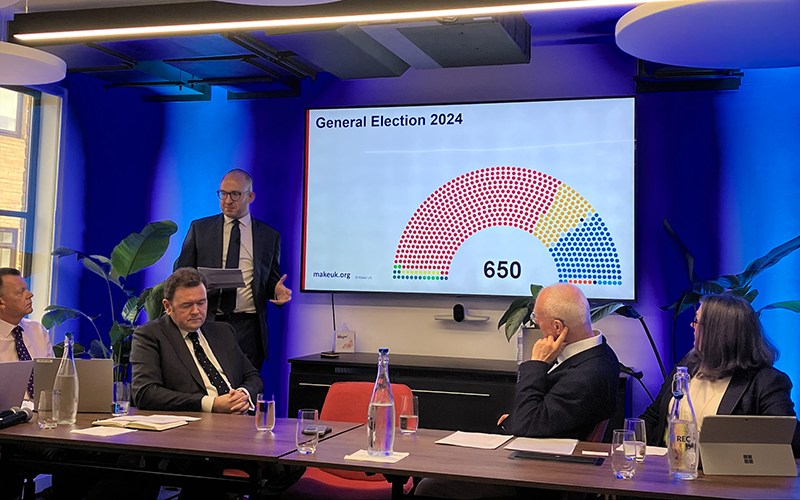REC AGM: New government set to create industrial strategy council

A new industrial strategy council that will set targets and monitor progress across government is likely to be created under the new Labour government.
This was an economist’s view of the post-election UK as Labour aims to achieve economic growth and productivity targets with “ruthless efficiency and reforming zeal”, the chief economist for manufacturers trade body Make UK said on Wednesday [10 July 2024].
Seamus Nevin (pictured) was speaking at the Recruitment & Employment Confederation’s annual general meeting and giving his opinion of the post-election UK and changes already underway towards “a decade of renewal”, as the government has described its plans.
Targets include securing the highest sustained growth in the G7 group of countries, “ending a chronic long tail of low productivity, [with] British firms and underperforming businesses, increasing UK exports and improving ultimately the living standards of British people”, Nevin said.
More teachers, enabling construction in green and brown belt areas, the proposed move of regional railway networks into the Great British Railways system and increased private investment for infrastructure are targets already outlined by the new government.
And Nevin predicted: “Right across government is also likely to be a new industrial strategy council, which will set targets and monitor progress across government. Together, these measures will be at the heart of what has been described as the biggest Whitehall shake-up in decades, breaking down departmental silos to pursue mission-driven policy delivery. At its core will be five new mission boards to aid cross-departmental work, with the entities to be headed by [Keir] Starmer himself and will draw on private sector expertise probably in the form of non-executive boards and adviser.”
Nevin went on to say: “The prime minister will also chair an overarching board or committee that sits atop the five mission-specific boards. The aim of this reorganisation is to reduce delays that can occur as measures passed between departments that are split between different budgets.
“Under the planned overhaul,” Nevin continued, “the Treasurery will be changed to focus more on attracting investment and drive economic growth and move away from its traditional function of simply managing the national finances.”
With economic growth now a central aim of the Treasury department, Nevin said, the move will be “a significant cultural shift for civil servants” working there.
Industrial strategy, Nevin said, “is really the cornerstone of the government’s agenda”.
• Comment below on this story. Or let us know what you think by emailing us at [email protected] or tweet us to tell us your thoughts or share this story with a friend.




